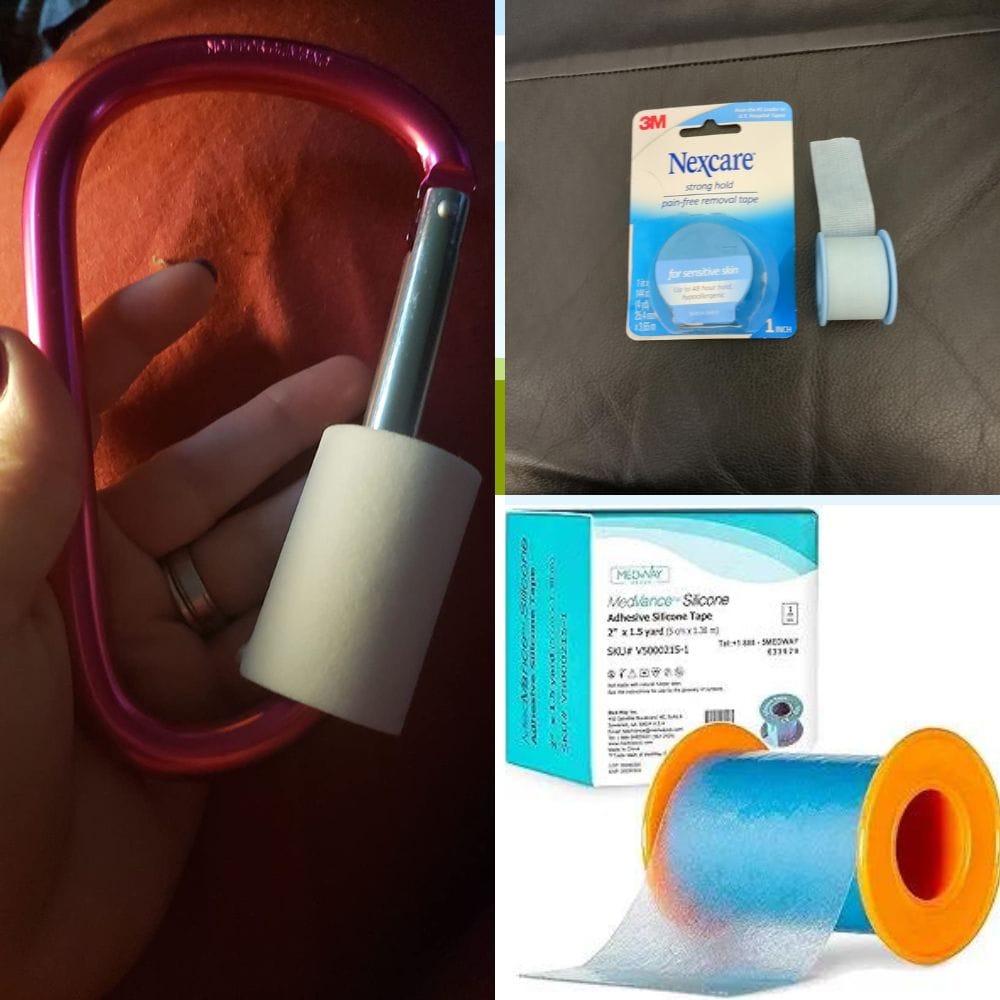Key Takeaways:
- Mouth taping can significantly improve sleep quality by promoting nasal breathing.
- Scientific studies suggest potential health benefits, including reduced snoring and improved oral health.
- Proper technique and safety considerations are crucial for effective mouth taping.
Introduction to Mouth Taping
Mouth taping is a practice that has gained traction in recent years, primarily due to its potential health benefits. This technique involves placing a piece of tape over the lips to encourage nasal breathing during sleep. While it may sound unconventional, proponents argue that it can lead to improved sleep quality and overall health. The science behind mouth taping is rooted in the benefits of nasal breathing, which is more efficient and beneficial than mouth breathing.
Nasal breathing filters and humidifies the air, providing a more optimal oxygen exchange. This process can enhance sleep quality, reduce snoring, and even improve oral health by preventing dry mouth. As more people seek natural ways to enhance their well-being, mouth taping has emerged as a simple yet effective method worth exploring.
The Science of Nasal Breathing

Nasal breathing is a fundamental aspect of human physiology that offers numerous health benefits. The nose acts as a natural filter, trapping dust, allergens, and pathogens, thus protecting the respiratory system. Additionally, nasal breathing helps regulate airflow, ensuring a steady supply of oxygen to the body.
Research indicates that nasal breathing can improve cardiovascular health by increasing nitric oxide production, which dilates blood vessels and enhances circulation. This process can lead to better oxygen delivery to tissues and organs, ultimately promoting overall health. By encouraging nasal breathing, mouth taping can help individuals harness these benefits during sleep.
How Mouth Taping Works
Mouth taping is a straightforward practice that involves using a hypoallergenic tape to gently seal the lips. This encourages the individual to breathe through their nose, especially during sleep. The tape should be applied horizontally across the lips, ensuring a comfortable yet secure fit.
The primary goal of mouth taping is to prevent mouth breathing, which can lead to various health issues. By promoting nasal breathing, mouth taping can help reduce snoring, improve sleep quality, and enhance oral health. It's essential to use a tape that is safe for skin contact and easy to remove, minimizing any potential discomfort.
Benefits of Mouth Taping

Mouth taping offers a range of potential health benefits, making it an attractive option for those seeking to improve their well-being. One of the most significant advantages is the reduction of snoring. By encouraging nasal breathing, mouth taping can help keep the airway open, reducing the vibrations that cause snoring.
Additionally, mouth taping can improve sleep quality by promoting deeper, more restful sleep. Nasal breathing enhances oxygen exchange, leading to better sleep efficiency and reduced nighttime awakenings. Furthermore, mouth taping can prevent dry mouth, a common issue associated with mouth breathing, thereby improving oral health.
Potential Risks and Considerations
While mouth taping can offer numerous benefits, it's essential to approach the practice with caution. Individuals with certain medical conditions, such as sleep apnea or nasal obstructions, should consult a healthcare professional before trying mouth taping. It's crucial to ensure that nasal passages are clear and unobstructed to avoid any breathing difficulties.
Additionally, selecting the right tape is vital to prevent skin irritation or discomfort. Hypoallergenic tapes designed for sensitive skin are recommended. It's also important to apply the tape gently and remove it carefully to avoid any potential damage to the skin.
Scientific Studies on Mouth Taping

Several scientific studies have explored the effects of mouth taping on sleep and health. Research has shown that mouth taping can significantly reduce snoring and improve sleep quality in individuals with mild sleep-disordered breathing. These studies highlight the potential of mouth taping as a non-invasive intervention for improving sleep.
Moreover, studies have indicated that mouth taping can enhance oral health by reducing the risk of dry mouth and associated dental issues. By promoting nasal breathing, mouth taping helps maintain optimal moisture levels in the mouth, preventing the growth of harmful bacteria.
Practical Tips for Mouth Taping
For those interested in trying mouth taping, there are several practical tips to ensure a safe and effective experience. First, it's essential to choose a tape that is comfortable and easy to remove. Hypoallergenic tapes designed for medical use are ideal for this purpose.
Before applying the tape, ensure that the lips are clean and dry to promote better adhesion. It's also advisable to start with a small piece of tape and gradually increase the size as you become more comfortable with the practice. Remember to remove the tape gently in the morning to avoid any skin irritation.
Anecdotal Evidence and Personal Experiences

Many individuals who have tried mouth taping report positive experiences and noticeable improvements in their sleep quality. Anecdotal evidence suggests that mouth taping can lead to reduced snoring, deeper sleep, and increased energy levels during the day.
Personal stories often highlight the simplicity and effectiveness of mouth taping as a natural remedy for sleep-related issues. While individual experiences may vary, the growing popularity of mouth taping underscores its potential as a valuable tool for enhancing health and well-being.
Comparing Mouth Taping to Other Sleep Aids
Mouth taping is just one of many sleep aids available to individuals seeking better rest. Compared to other interventions, such as CPAP machines or oral appliances, mouth taping is a non-invasive and cost-effective option. It requires minimal equipment and can be easily incorporated into a nightly routine.
While mouth taping may not be suitable for everyone, it offers a simple and accessible solution for those looking to improve their sleep quality naturally. By promoting nasal breathing, mouth taping addresses the root cause of many sleep-related issues, making it a valuable addition to any sleep hygiene regimen.
Conclusion: Embracing Mouth Taping for Better Health

Mouth taping is a practice that holds promise for improving sleep quality and overall health. By encouraging nasal breathing, it offers a range of benefits, from reduced snoring to enhanced oral health. While it's essential to approach mouth taping with caution and consult a healthcare professional if necessary, it remains a simple and effective tool for those seeking natural ways to enhance their well-being.
As more individuals explore the potential of mouth taping, it continues to gain recognition as a valuable addition to sleep hygiene practices. With proper technique and safety considerations, mouth taping can help individuals breathe easy and enjoy the benefits of restful, rejuvenating sleep.

Is mouth taping safe for everyone?
Mouth taping is generally safe for most individuals, but it's important to consult a healthcare professional if you have any underlying medical conditions, such as sleep apnea or nasal obstructions. Ensuring clear nasal passages is crucial for safe and effective mouth taping.
What type of tape should I use for mouth taping?
It's recommended to use hypoallergenic tape designed for sensitive skin. Medical tapes that are easy to remove and gentle on the skin are ideal for mouth taping. Avoid using duct tape or other harsh adhesives that may cause irritation.
Can mouth taping help with snoring?
Yes, mouth taping can help reduce snoring by promoting nasal breathing, which keeps the airway open and reduces vibrations. Many individuals report significant improvements in snoring and sleep quality after incorporating mouth taping into their nightly routine.

Mouth taping is a simple yet effective practice that promotes nasal breathing during sleep, offering numerous health benefits. By reducing snoring, improving sleep quality, and enhancing oral health, mouth taping has gained popularity as a natural remedy for sleep-related issues. While it's essential to approach the practice with caution and consult a healthcare professional if necessary, mouth taping remains a valuable tool for those seeking to improve their well-being.












